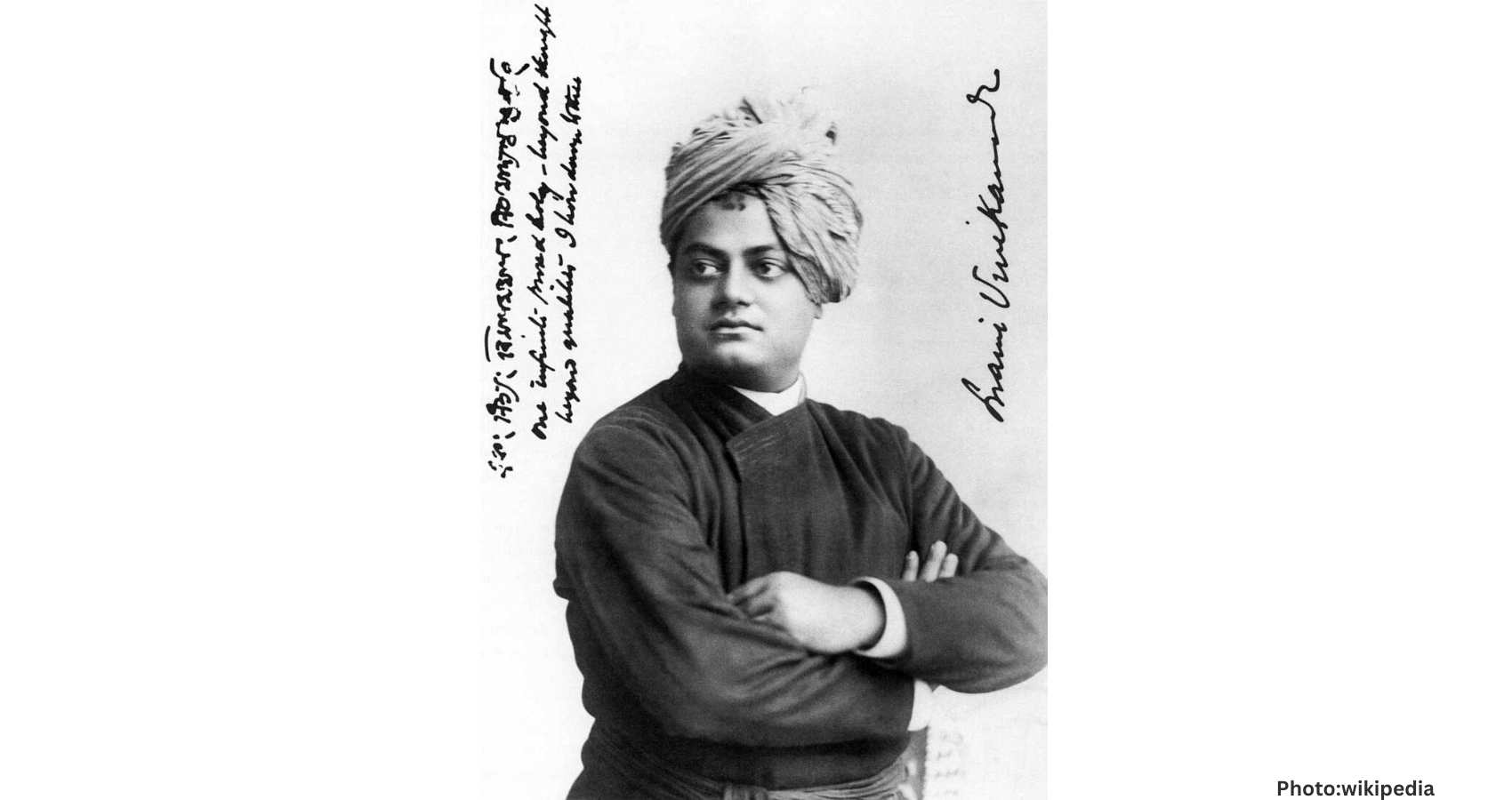For most Americans at the turn of the 20th century, their first encounter with Swami Vivekananda was his speech at the Parliament of the World’s Religions in Chicago in 1893. Addressing the audience as “sisters and brothers,” the 30-year-old Hindu delegate immediately captured their attention. He spoke about Hinduism’s concept of the “oneness of existence,” introducing a spiritual philosophy that resonated deeply with Western audiences.
However, that speech was only the beginning of Vivekananda’s engagement with America. Seven years later, he returned, focusing exclusively on the West Coast and delivering lectures to thousands in California. His spiritual outreach was cut short by his untimely death in 1902 at the age of 39, yet his influence remains strong, particularly in the state where he believed he had given his best.
“He is our brand,” stated Swami Prasannatmananda, who leads the Vedanta Society of Berkeley. “His name is enough.”
In recognition of Vivekananda’s legacy, the Vedanta Society of Berkeley, in collaboration with the Indian consulate in San Francisco, is launching a yearlong celebration, marking 125 years since his visit. The inaugural event, scheduled for Saturday, February 22, will be a discussion among religious leaders at the First Unitarian Church of Oakland. This historic venue was where Vivekananda delivered eight lectures in 1900.
“I personally consider that place as a place of pilgrimage,” Prasannatmananda said.
A plaque on the pulpit and a chair inside the church commemorate Vivekananda’s presence there on February 25, 1900. His lectures at the church were arranged by Rev. Benjamin Fay Mills, who was the church’s spiritual leader at the time. Mills had first encountered Vivekananda at the 1893 Parliament and extended an invitation. Each of the eight lectures drew an audience of more than 2,000, with another 500 gathered outside, unable to enter.
Rev. Laurel Liefert, who now leads the First Unitarian Church, expressed amazement at the church’s role in allowing Vivekananda to speak at a time when few venues in Northern California would have done so. “1900 is a long time ago, so that’s amazing. That is just so powerful and very in keeping with who we want to be in the community,” she said.
During his speech, Vivekananda posed a profound question to the audience: “Where is the solution of this world?” He then offered an answer, urging people to turn inward. “Those who look outside will never find it; they must turn their eyes inward and find truth. Religion lives inside.”
Liefert admitted that she knew little about Vivekananda before joining the church, but she felt an immediate connection with his message. “When I picture Vivekananda in our pulpit, I picture that he’s just emanating light,” she said. She also reflected on her own role as a minister, stating, “For me as a minister, I always feel like I’m an instrument of something that is coming through me. And I just can’t even imagine what an instrument he was.”
Vivekananda’s teachings align closely with the church’s philosophy, which embraces a diverse congregation that includes Buddhists, Sufis, atheists, agnostics, humanists, and pagans. Liefert pointed out that his vision of multiple paths leading to the divine mirrors the Unitarian Church’s commitment to radical inclusivity.
Sarah Watts, a choir member and congregant at the church, echoed this sentiment. She believes that Unitarian Universalists owe much to Eastern spiritual thinkers like Vivekananda, who influenced the faith’s early leaders. “I am proud of a lot of the things that Unitarian Universalists have done in the past, standing up and saying, ‘Hey, you know what? The way we do things? You know we could do it differently, or look at it this way,’” she said.
Watts was drawn to the church by its emphasis on dialogue and mutual support among people with different beliefs. “I can have the beliefs I have, and other people can have theirs, and we can be in conversation. We can support each other,” she explained.
In his time, Vivekananda encouraged Christian Americans to peacefully coexist with people of different faiths. Liefert believes his message is still relevant today, though it requires an even deeper level of understanding. “Now we’re thinking we need to go beyond tolerance, and try to seek something deeper, like understanding,” she said. “I think that if he was alive today, he would get that right.”
Prasanna Vengadam, an English professor at Laney College and a Vedanta Society devotee, considers Vivekananda’s 1900 visit to be unparalleled. “There has been no Hindu who’s commanded this much respect, who’s given the most beautiful teachings, as Swami Vivekananda has, and I want to absolutely adore that,” she said.
Vengadam, who spoke about interfaith understanding at the 2006 Parliament of the World’s Religions, credits Vivekananda with giving Hindu Americans a strong sense of identity. “He’s given our community members here a strong foothold to stand on and to take pride in ourselves,” she said.
Having immigrated to the United States in the 1980s, Vengadam found that Vivekananda’s teachings provided her with the language to express her beliefs. She was raised in a Hindu household but also attended a Catholic convent school in Chennai, India. His philosophy helped her reconcile these influences.
Most importantly, his teachings shaped her approach to life, leading her to seek God in everyone she encounters. “He cannot be a ‘best kept secret,’” she said. “He cannot just sit in books. So at timely intervals, we’ve got to bring him out and say, ‘Hey people, we’ve got these teachings. Come over and listen to them. Please read this. Please know this.’”
She emphasized the need to keep his teachings alive so that more people can find spiritual fulfillment. “So reviving what he taught so that more people can gain more fulfillment and advancement in their own spiritual paths,” she said.
Vivekananda’s brief but impactful time in America continues to resonate, especially among those who see his philosophy as a guiding light for interfaith understanding and spiritual growth. The upcoming yearlong celebration in California is a testament to his lasting influence.

